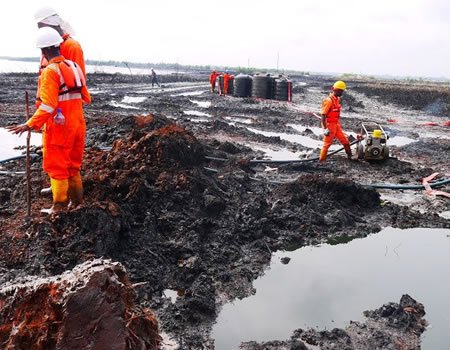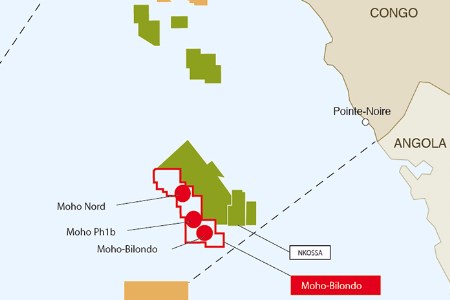
11 February 2014, Kampala – Ugandan government’s signing of the long-awaited memorandum of understanding (MOU) with the three oil companies last week ended months of protracted negotiations and opened a new phase in the development of Uganda’s petroleum resources.
Tullow, Total and Cnooc on Wednesday agreed on the cooperation framework to guide production, refining and export of oil resources. Irene Muloni, the minister for Energy and Mineral Development, and the general managers of the three companies, hailed the MOU as a historic milestone.
“The conclusion of the MOU is a significant step for Uganda as it gives a road map for achieving a harmonized commercialisation plan for the development of the discovered oil and gas resources in the country,” Muloni told the media in Kampala.
“The plan includes the use of petroleum for power generation, supply of crude to the refinery and export of crude through an export pipeline.”
Uganda, the minister said, expects to pump crude by 2018, while next year government will begin to use crude to generate electricity. The MOU, Muloni said, requires government to provide support to oil companies in acquiring approvals for studies and surveys for an export pipeline and initiate discussions with neighbouring countries in relation to cross-border frameworks for the pipeline.
In turn, oil companies are expected to support the government’s efforts in the construction of a refinery with an inbuilt capacity of 60,000 barrels per day (BPD). Under the MOU, the government will develop a refinery while oil companies will develop a pipeline to export crude oil.
At peak, the oil companies will export 120,000 BPD, twice more than the 60,000 BPD refined. Government, however, retains the first call on any extra oil reserves discovered. The oil companies say that a pipeline via the Kenyan coast is essential since the projected oil production volumes will significantly exceed national and regional demand.
Kenya is expected to take the lead role in the construction of the pipeline as Uganda builds the refinery. Muloni also announced Uganda’s discovered oil reserves have gone up from 3.5 billion barrels due to recent appraisals mainly by Total, though the government is yet to ascertain the new figure.
Government expects to announce the lead investor for the refinery mid this year. Six firms and consortia have been shortlisted to construct the refinery. In July last year, Uganda signed a memorandum of understanding with Kenya and South Sudan over the construction of a crude export pipeline to the Kenyan port of Lamu.
The $4 billion pipeline is expected to link with a pipeline carrying oil from South Sudan. Jimmy Mugerwa, the General Manager at Tullow Oil Uganda, explained that the MOU laid out a route-to-market framework for oil resources and set up Uganda as a future oil producer.
The route-to-market framework includes refining, crude export pipeline and using crude to generate electricity.
Mugerwa stressed that the conclusion of the MOU is significant because the capital required to put in place the infrastructure before Uganda can pump its first barrel of oil is huge.
He said that starting this week, oil companies and government were expected to begin drawing the implementation plan for the MOU to work. During this phase, Tullow will seek to conclude all necessary field development plans and production approvals with government.
– The Observer



